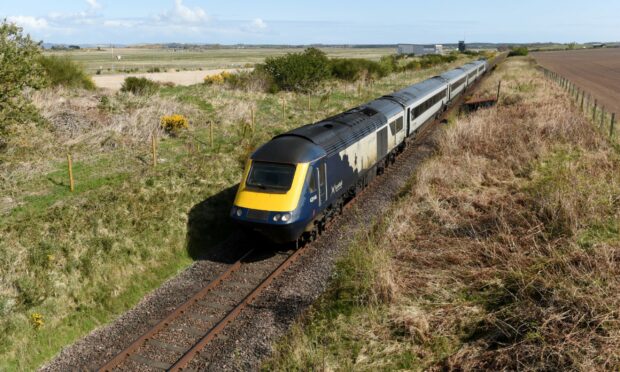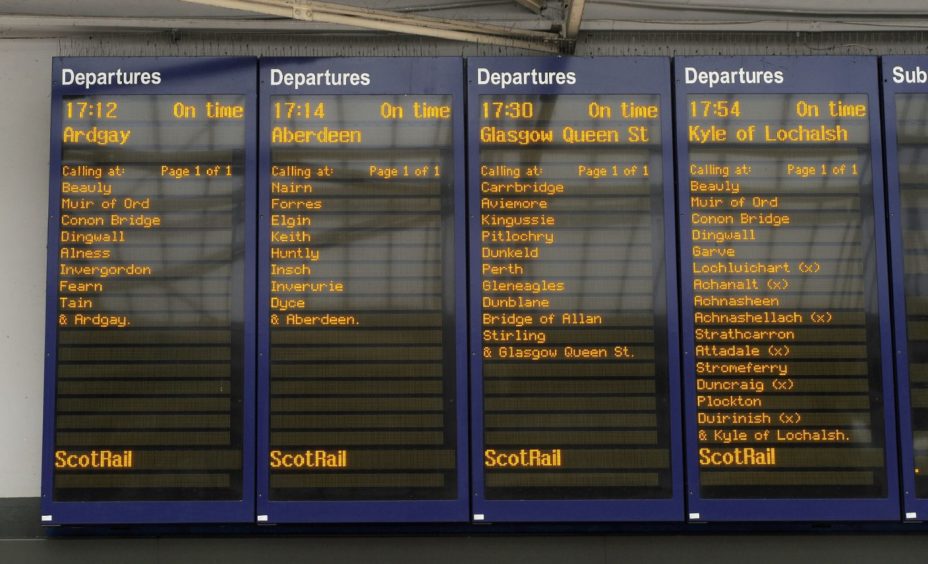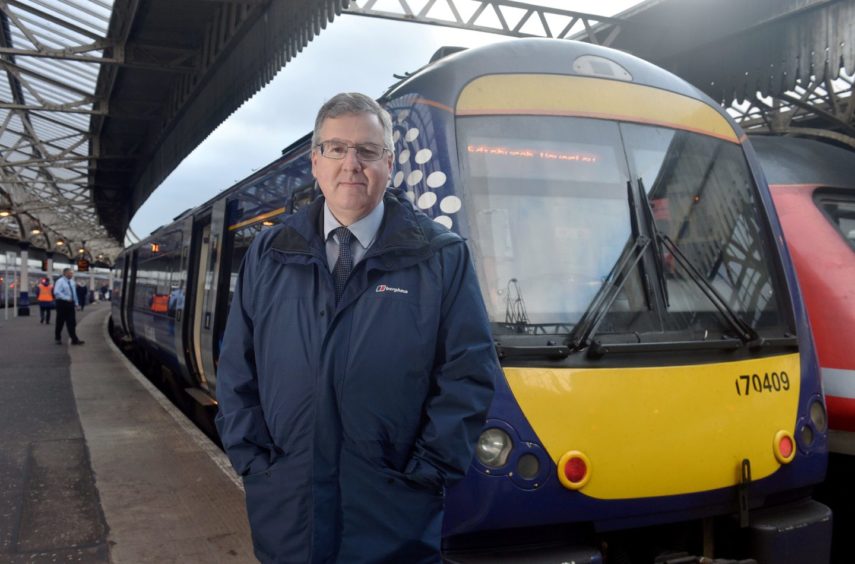Rail services across Scotland have been slashed – although the north and north-east has been spared the worst of the cuts.
Services to Aberdeen and Inverness have been looked at as part of ScotRail’s new timetable, which contains 300 fewer services than before the pandemic.
The number of daily trains has fallen from 2,400 pre-pandemic to 2,100 under the new timetable proposals.
Passenger journeys have now risen to around 50% of their pre-Covid levels, but ScotRail insists the proposed timetable changes reflect demand and will cut unnecessary emissions – while saving the taxpayer £30million-£40million a year.
Unions however have insisted it is a “transparent attempt to use the pandemic as a cover for cuts” with the changes potentially discouraging people from taking the train.
What do the changes mean for me?
For Inverness passengers, the main service to Perth/Edinburgh travel via Stirling – where passengers will have to change trains.
There will be 10 trains per day northbound and 11 southbound, retimed “to offer a better overall service between Inverness and Perth”, with services only calling at Stirling south of Perth.
Services between Aberdeen and Inverness will not be changes significantly in the new May 2022 timetable, providing 11 trains per day in each direction with additional services between Elgin and Inverness and Inverurie, Aberdeen and Montrose.
For passengers in Aberdeen, there will still be one train an hour to Edinburgh and Glasgow, calling at limited stations.
The consultation, Fit for the Future, states: “We are proposing that the May 2022 timetable will continue to provide one train per hour in most hours between Edinburgh and Aberdeen, calling at limited stations, to encourage long distance journeys by rail, with LNER services operating in the hours when ScotRail services do not. The intercity service will continue to be supported by local services around Dundee and Aberdeen.”
It states that during 2019/20, intercity services to Aberdeen and Inverness were operated by an average of 13 high-speed trains, and warned that if the planned 23 had operated, costs would have soared by £15million – “turning Aberdeen services from close to breakeven to loss making”.
It adds: “Stations on Aberdeen and Inverness intercity routes are 10% of total cost respectively.”
Although services between Inverness and the Central Scotland operated at around 35% in 2019/2020, the route operated at a loss for Scotrail.
Why are there fewer services?
ScotRail claim that they have revised their services in response to passenger numbers, and to help reduce unnecessary emissions.
They say that prior the pandemic, there were “significantly more seats” being provided than required on a number of routes across the country.
The document states: “For example, under five and a half million passenger journey miles were completed on a typical weekday, which was just 23% of the available number of seats. In other words, seats were empty for 77% of the distance that was travelled.
“Returning to a pre-pandemic timetable would result in trains operating 26 million more vehicle miles each year for little customer benefit. As well as increased emissions, that would increase ScotRail costs to the taxpayer by £30million to £40million each year.”
David Simpson, Scotrail operations director, said: “The significant cost of running the railway following the impact of the coronavirus pandemic means it’s essential that the railway meets the changing needs of customers, as well as providing taxpayers with best value for money. Our timetable proposals do that.
“That might mean offering a different service on different days of the week or different times of year as passenger demand varies across the week or through the year. But by doing so, we can ensure Scotland’s Railway remains sustainable into the future.”
We've launched a public consultation for a new customer-focused timetable which looks to reflect the current level of service following the COVID-19 pandemic. We're welcoming all views on the proposed timetable until October 1.
To share your views, visit below. ⬇️
— ScotRail (@ScotRail) August 20, 2021
Will people just take the car?
However, the changes are likely to lead to increasing public anger against Dutch firm Abellio.
The company has been hit by numerous complaints about late or non-running trains and large, inconsistent fares.
The Scottish Government – which is committed to tackling climate change – will take over the franchise from March next year.
Unions say that as Scotland prepares to host the UN Climate Change Conference in Glasgow in October, it is “incredible” that changes that could push people back towards taking the car are being mooted.
In a joint statement, Aslef, RMT, TSSA and Unite said: “It is incredible that in the year that the world comes to Scotland to debate the very future of our planet, ScotRail is proposing cuts to the rail services in a transparent attempt to use the pandemic as cover for cuts.
“These plans would not only cull jobs, they would hit the most vulnerable hardest including elderly and disabled people. All the while diverting many passengers back onto the roads and increasing pollution, congestion and greenhouse gases.
“It is exactly this type of short-term thinking that has contributed to the climate crisis.
“We need a railway where trains are regular, reliable and affordable with services properly staffed.
“It is this model of a high-quality dependable service that will encourage car drivers onto our trains. ScotRail’s proposals will achieve the opposite.”
The consultation runs until October 1.


